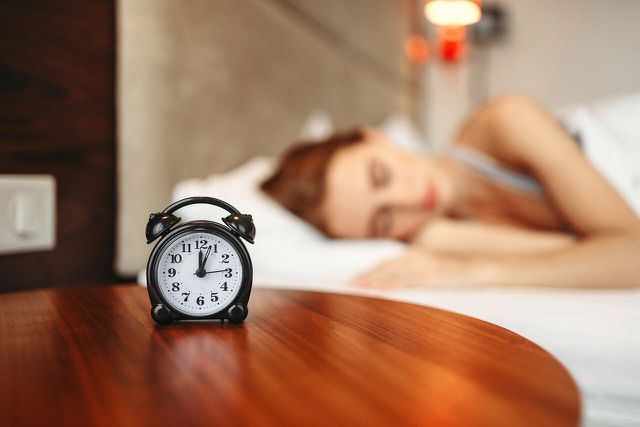
With these six tips you can strengthen your mental health so that you can go through your life in a healthy and balanced way and with more well-being – because stress, hectic rush and responsibility pull on our nerves and can tire us mentally.
Not only is our body stressed in everyday life and therefore tired, our mind and psyche also need periods of rest. Just like the body, our psyche can also get sick. While we often cannot ignore physical signs, we often put more stress on our psyche than we should. It is not uncommon for physical complaints to be the result of mental exhaustion.
Mental health describes how we feel. This includes all emotional and psychological processes that affect our well-being. Without this mental health, the quality of life suffers and we may not be able to provide the desired or expected performance.
The following tips can help you strengthen your mental health and improve your well-being.
Tip 1: take breaks for mental health

(Photo: CC0 / Pixabay / silviarita)
Small To take breaks, spread over the day, but also longer breaks at the weekend are necessary so that head and body can relax. Ideally, you fill your free time with things that you enjoy and that do not make you think about work or the stressful everyday life. In addition to hobbies, you should also plan periods of rest in your free time.
Tip 2: exercise for mental health

(Photo: CC0 / Pixabay / sasint)
Studies prove that sport has a positive effect on the psyche and wellbeing. When you move, the body produces an increased release of the happiness hormone Serotonin. At the same time, your body breaks down the stress hormone cortisol when you move (you can find more information here: Lower cortisol).
Not only do chemical changes take place, but also negative thoughts are driven away, as the activity in the head (im prefrontal cortex) is lowered. Sport and exercise are great for driving away negative thoughts and increasing your physical and mental health.
Tip 3: A healthy diet strengthens mental health

(Photo: CC0 / Pixabay / congerdesign)
Your diet also affects not only your well-being, but your mental health. We are not talking about so-called comfort food, which only makes you feel good for the moment, but about a healthy, balanced diet.
One Canadian study came to the conclusion in 2019 that, for example, a small amount of vegetables and fruit in the diet as well as very salty products and chocolate can promote depression in women. This suggests that eating a healthy diet can lower your risk of developing depression. In addition to many vitamins from fruit, vegetables and whole grain products, you should have enough Omega-3 fatty acids take to you.
Tip 4: Time with friends: inside & family keeps you mentally healthy
Surround yourself with people who are good for you! Time with friends and family is known as a mood lift. One study from 2011 shows that activities with friends can reduce stress, promote health, improve self-esteem and thus strengthen your well-being. Personal meetings increase the effect.
So friends not only make you happy, they also promote your physical and mental health!
Tip 5: digital detox as a break

(Photo: CC0 / Pixabay / Katniss12)
The constant consumption of digital media and the associated accessibility lead to stress. This, in turn, can negatively affect your mental health. Try to limit your digital consumption by introducing times when you are unavailable and turning off all devices. Don’t sleep with your smartphone next to the bed and let an analog alarm clock wake you up in the morning. This is how your day starts without (stressful) messages.
If you want a break from being constantly available and having to answer, then try for a while Digital detox. Some apps can help you reduce your digital consumption: Digital wellbeing: With these apps you create the digital wellbeing. This is how you can promote your mental health.
Tip 6: sleep for mental health

(Photo: CC0 / Pixabay / Claudio_Scott)
While you sleep, not only does your body recuperate, but your psyche also recharges your batteries for the next day. If you don’t get enough sleep, your body and your psyche are not resilient and more susceptible to illnesses.
Try to get about eight hours of sleep each night. Your exact sleep needs can vary, so listen to your body and occasionally allow yourself a little more sleep if you feel like it. You can find out more here: Sleep rhythm: tips for healthy sleep. One Evening routine as well as ours Tips for falling asleep can help you get enough restful sleep.
Caution!
Occasional Bad mood or sadness, we all know, but if you feel mentally defeated for a long period of time, without drive (read also: Overcome listlessness) or feel sad, you should definitely seek advice from an: r Expert: in. Mental illnesses like depression have serious consequences and can rarely be managed on their own.
Read more on Techzle.com:
- Mental strength: this is how you can train it
- Resilience: This is how you train your emotional resilience
- Burnout Symptoms: These signs should be taken seriously